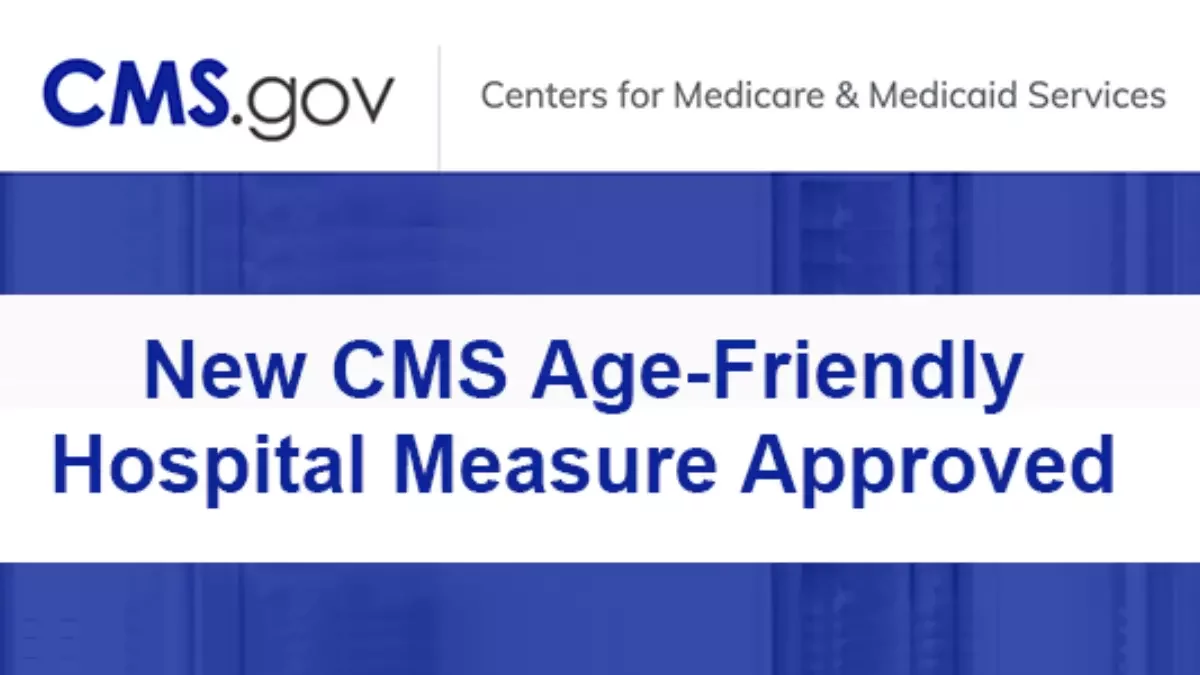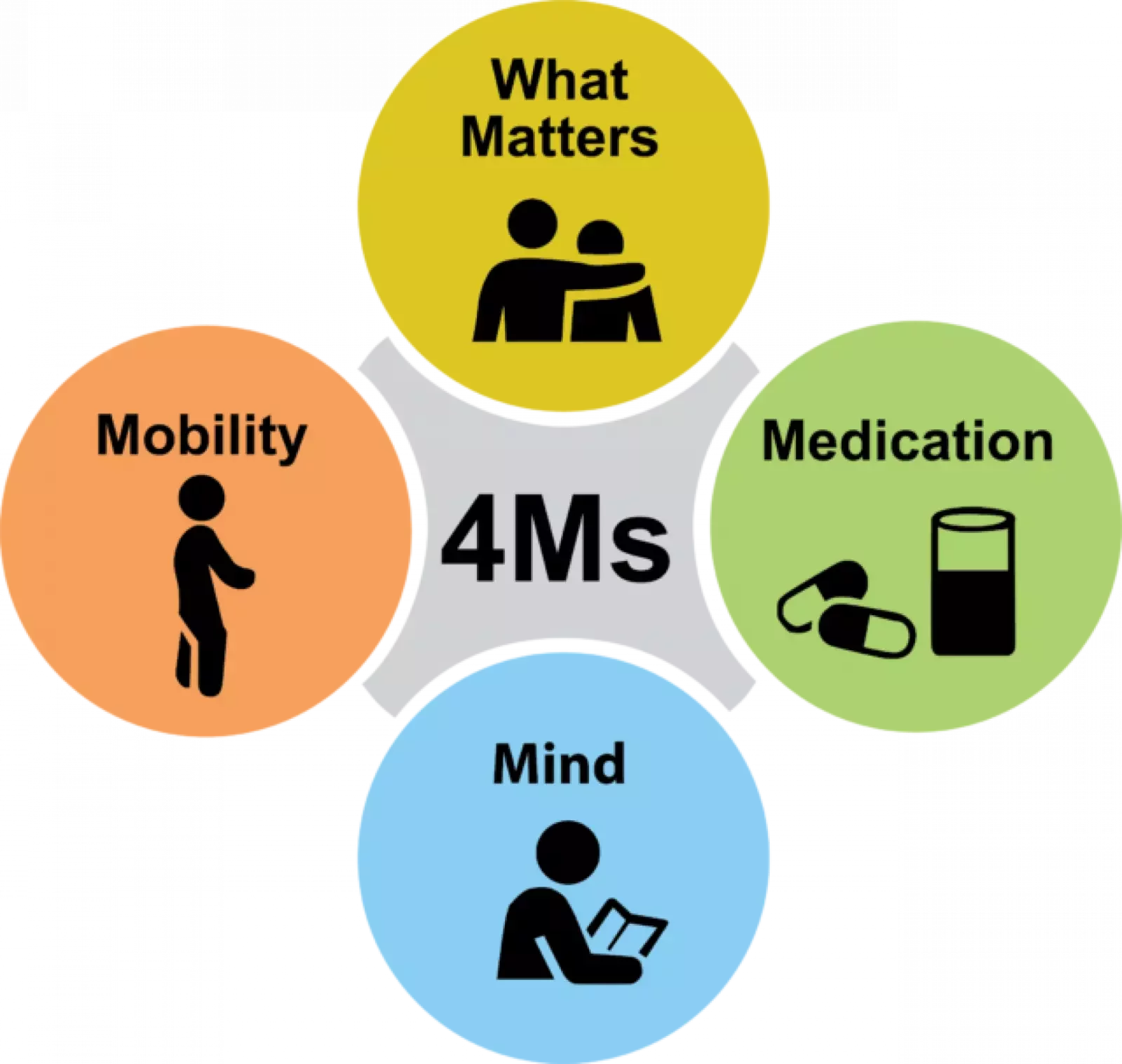
- What Are the CMS 2025 Age-Friendly Measures?
- How Will CMS 2025 Affect My Hospital?
- What Changes Are Needed in Data Collection and Reporting?
- How Can We Improve Quality and Patient Outcomes?
- How Do I Implement Age-Friendly Measures?
- What Are the Steps for Integration into Quality Improvement?
- How Can We Improve Data Management and Staff Training?
- What is the 4Ms Framework?
- How Can We Address What Matters to Patients?
- How Do We Safely Manage Medication and Cognitive Health?
- How Can We Improve Mobility for Older Adults?
- What’s the Next Step for My Hospital?
- How Can We Get Started on the Path to CMS 2025 Compliance?
- How Can We Get Started on the Path to CMS 2025 Compliance?
- Sources
- Where Can I Find More Information?
- A Practical Approach to CMS 2025 Age-Friendly Measures00:00
One of the most transformative changes ahead is the CMS 2025 Age-Friendly Measures, introduced by the Centers for Medicare & Medicaid Services. These forward-thinking guidelines are set to redefine care for older adults, emphasizing streamlined data collection, enhanced reporting, and performance improvement strategies.
Understanding these measures will help your hospital align operations with the latest best practices in geriatric care. The 4Ms Framework—What Matters, Medication, Mentation, and Mobility—provides a clear structure for implementing these changes and optimizing care delivery for older adults.
Let’s explore how your hospital can effectively meet these new requirements and enhance outcomes for older patients by integrating the CMS 2025 Age-Friendly Measures into your care model.
What Are the CMS 2025 Age-Friendly Measures?
The CMS 2025 Age-Friendly Measures are a set of guidelines and metrics designed to improve the quality of care for older adults within the Medicare and Medicaid programs. These measures focus on key aspects of geriatric care, aligned with the 4Ms Framework:
- What Matters: Understanding and respecting each patient's individual goals and preferences to ensure that care is aligned with what is most important to them.
- Medication: Using medications safely and effectively, minimizing polypharmacy, and reducing the risk of adverse drug events.
- Mentation: Preventing, identifying, treating, and managing cognitive impairments, including dementia, depression, and delirium.
- Mobility: Ensuring that older adults move safely every day to maintain function and prevent falls.
These measures are not merely regulatory requirements; they represent a holistic approach to elderly care that can significantly enhance patient outcomes and satisfaction.
The Impact of CMS 2025 Measures on Hospitals
Implementing the CMS 2025 Age-Friendly Measures will have a profound impact on hospital operations and quality improvement initiatives. Here are some key areas affected:
- Data Collection and Reporting
- Increased Data Requirements: Hospitals will need to collect more detailed data on geriatric care, requiring robust data management systems. This includes comprehensive patient histories, medication records, and functional assessments.
- Enhanced Reporting Mechanisms: Transparent reporting on age-friendly metrics will be essential for compliance and performance evaluation. Hospitals must ensure that their data reporting aligns with CMS standards to avoid penalties.
- Quality Improvement Initiatives
- Integration of New Metrics: Existing quality improvement programs will need to incorporate the new age-friendly measures, necessitating adjustments in strategies and goals. This integration ensures that all aspects of patient care are aligned with the latest standards.
- Performance Benchmarks: Establishing benchmarks based on CMS measures will guide hospitals in assessing their performance and identifying areas for improvement. These benchmarks serve as targets for the continuous enhancement of care quality.
- Resource Allocation
- Investment in Training: Healthcare staff will require training to effectively implement age-friendly practices and utilize new data collection tools. Proper training ensures that staff are competent in delivering high-quality care tailored to older adults.
- Technology Upgrades: Investing in advanced health IT systems will be crucial for efficient data management and reporting. Modernizing IT infrastructure supports the seamless integration of new measures and enhances overall operational efficiency.
- Patient Outcomes
- Improved Care Quality: Adhering to age-friendly measures is expected to enhance the quality of care for older adults, leading to better health outcomes and higher patient satisfaction. Comprehensive care approaches address the multifaceted needs of elderly patients, fostering holistic well-being.
- Reduced Readmissions: Effective care coordination and comprehensive assessments can reduce hospital readmissions, lowering costs and improving patient experiences. By addressing potential health issues proactively, hospitals can minimize the likelihood of complications that lead to readmissions.
Integrating Age-Friendly Metrics into Quality Improvement Initiatives
1. Assess Current Practices
- Gap Analysis: Conduct a comprehensive evaluation of your existing geriatric care practices to identify gaps in relation to the new CMS measures. This will help pinpoint areas of strength and opportunities for targeted improvement.
- Stakeholder Engagement: Engage key stakeholders—healthcare providers, administrators, IT personnel, and others—early in the process. Gathering diverse perspectives ensures a well-rounded approach and promotes cross-functional collaboration.
2. Develop an Implementation Plan
- Set Clear, Measurable Goals: Establish specific, measurable objectives aligned with the CMS age-friendly metrics. Clear goals help guide efforts, track progress, and enable successful outcomes.
- Allocate Resources Effectively: Ensure that the necessary resources, including budget and staffing, are allocated to support the implementation. Adequate resources are critical for the successful rollout and sustainability of new measures.
3. Enhance Data Management
- Leverage Advanced Health IT Systems: Implement electronic health records (EHRs) and other health IT solutions to streamline data collection, reporting, and analysis. These systems ensure accuracy and efficiency in data handling.
- Automate Data Processes: Introduce automation tools to minimize manual data entry and reduce errors. Automation not only enhances data reliability but also frees up staff time, allowing them to focus more on patient care.
4. Train and Educate Staff
- Develop Comprehensive Training Programs: Create training initiatives to educate healthcare staff on the new age-friendly measures and the importance of accurate data reporting. Well-informed staff are better prepared to adopt and implement changes effectively.
- Commit to Ongoing Education: Offer continuous education to keep staff updated on best practices and regulatory updates. Regular learning opportunities cultivate a culture of excellence and adaptability within the team.
5. Monitor and Evaluate Performance
- Conduct Regular Audits: Perform routine audits to ensure compliance with CMS measures and identify areas for improvement. Audits provide valuable insights into the effectiveness of the current approach and highlight where adjustments are needed.
- Utilize Performance Metrics: Use clear, data-driven performance metrics to track progress and make informed decisions that drive improvements in care quality. These metrics offer measurable insights into the success of the implemented strategies.
By following these steps, your hospital can successfully integrate the CMS 2025 Age-Friendly Measures into its quality improvement initiatives, ensuring that geriatric care is both effective and compliant with national standards.

Introducing the 4Ms Framework for Age-Friendly Care
1. What Matters
Understanding and prioritizing each patient’s unique goals and preferences is fundamental to delivering quality care. This involves:
- Personalized Care Plans: Creating care plans that reflect what matters most to the patient, ensuring their values and wishes guide treatment decisions.
- Patient and Family Engagement: Actively involving patients and their families in the decision-making process, fostering trust, improving satisfaction, and promoting a sense of partnership in care.
2. Medication
Effective and safe medication management is essential in geriatric care:
- Polypharmacy Reduction: Reducing the number of medications used to lower the risk of adverse drug events and side effects.
- Regular Medication Reviews: Continuously reviewing and adjusting medications to ensure they are still necessary, effective, and appropriate for the patient’s changing health needs.
3. Mentation
Maintaining cognitive function and supporting mental health are core aspects of age-friendly care:
- Cognitive Assessments: Performing routine cognitive assessments to identify and manage cognitive decline or other neurological concerns.
- Mental Health Support: Providing timely and effective support for mental health issues, such as depression and anxiety, ensuring older adults receive the emotional care they need.
4. Mobility
Promoting and preserving mobility is crucial for maintaining independence and overall health:
- Fall Prevention: Implementing strategies to reduce the risk of falls and related injuries, a common concern for older adults.
- Physical Therapy: Offering physical therapy and mobility-enhancing interventions to support or improve movement, thereby enhancing quality of life.
By integrating the 4Ms Framework with the CMS 2025 Age-Friendly Measures, hospitals can adopt a comprehensive, well-rounded approach to geriatric care—one that addresses not just medical needs, but also the individual’s broader health, well-being, and quality of life.
Making the Case for Readiness Rounds
The CMS 2025 Age-Friendly Measures mark a pivotal change in how hospitals approach geriatric care. Successfully navigating these shifts demands a strategic approach, robust data management, and ongoing performance enhancement. Readiness Rounds offers a comprehensive solution that meets these needs, positioning it as an essential resource for hospital leadership.
By choosing Readiness Rounds, you invest in a platform that not only ensures CMS compliance but also improves the overall quality of care for elderly patients. Seamlessly integrating age-friendly metrics and the 4Ms Framework into your quality improvement efforts, Readiness Rounds allows you to focus on what matters most—delivering exceptional care to those who need it most.
